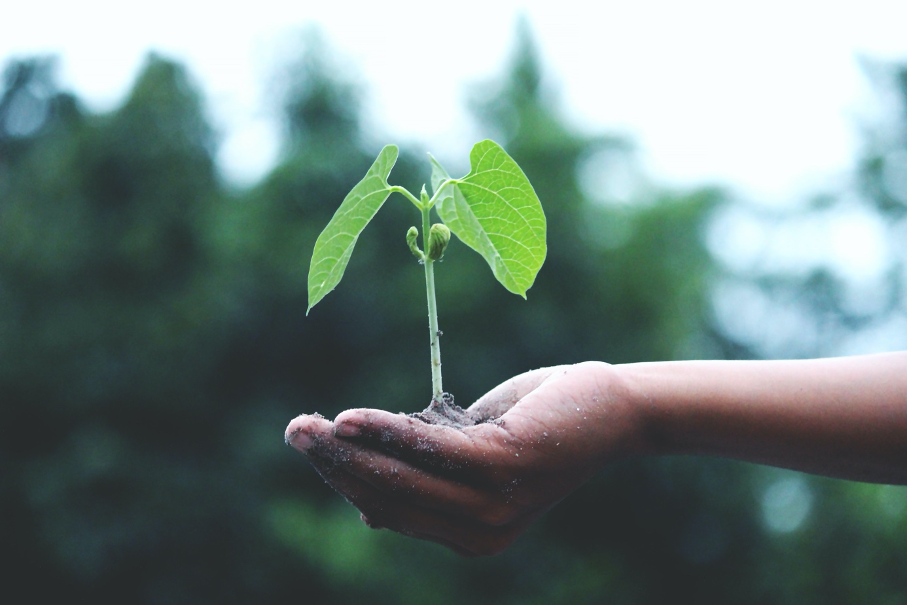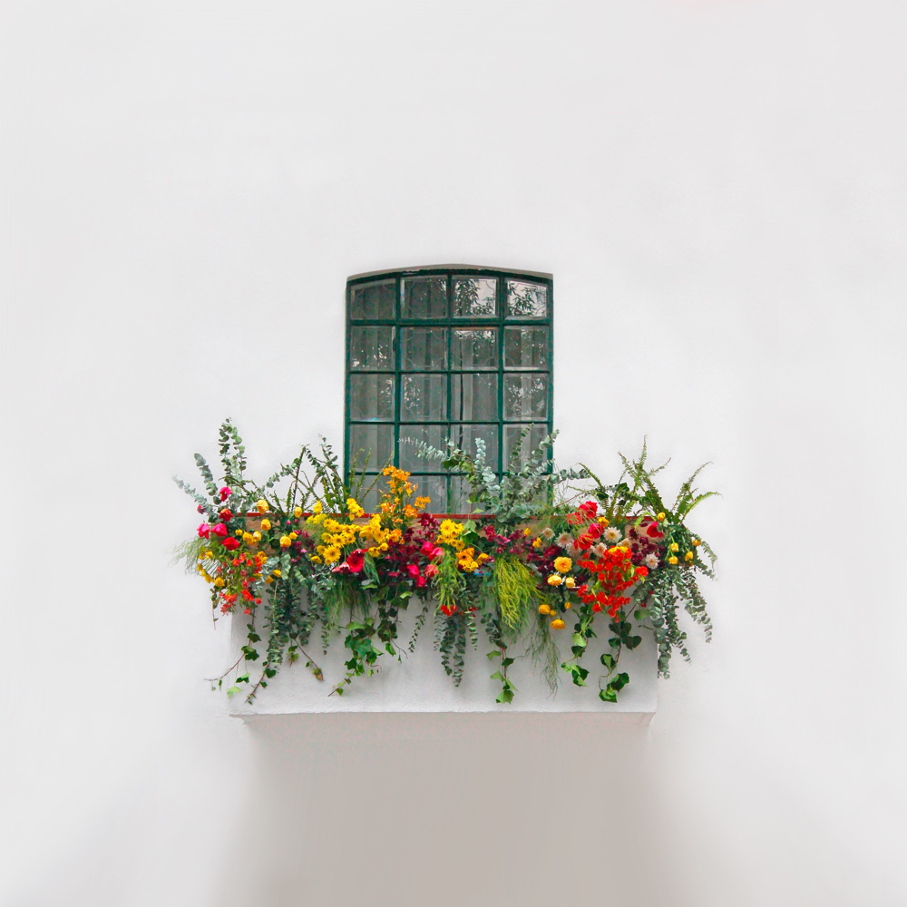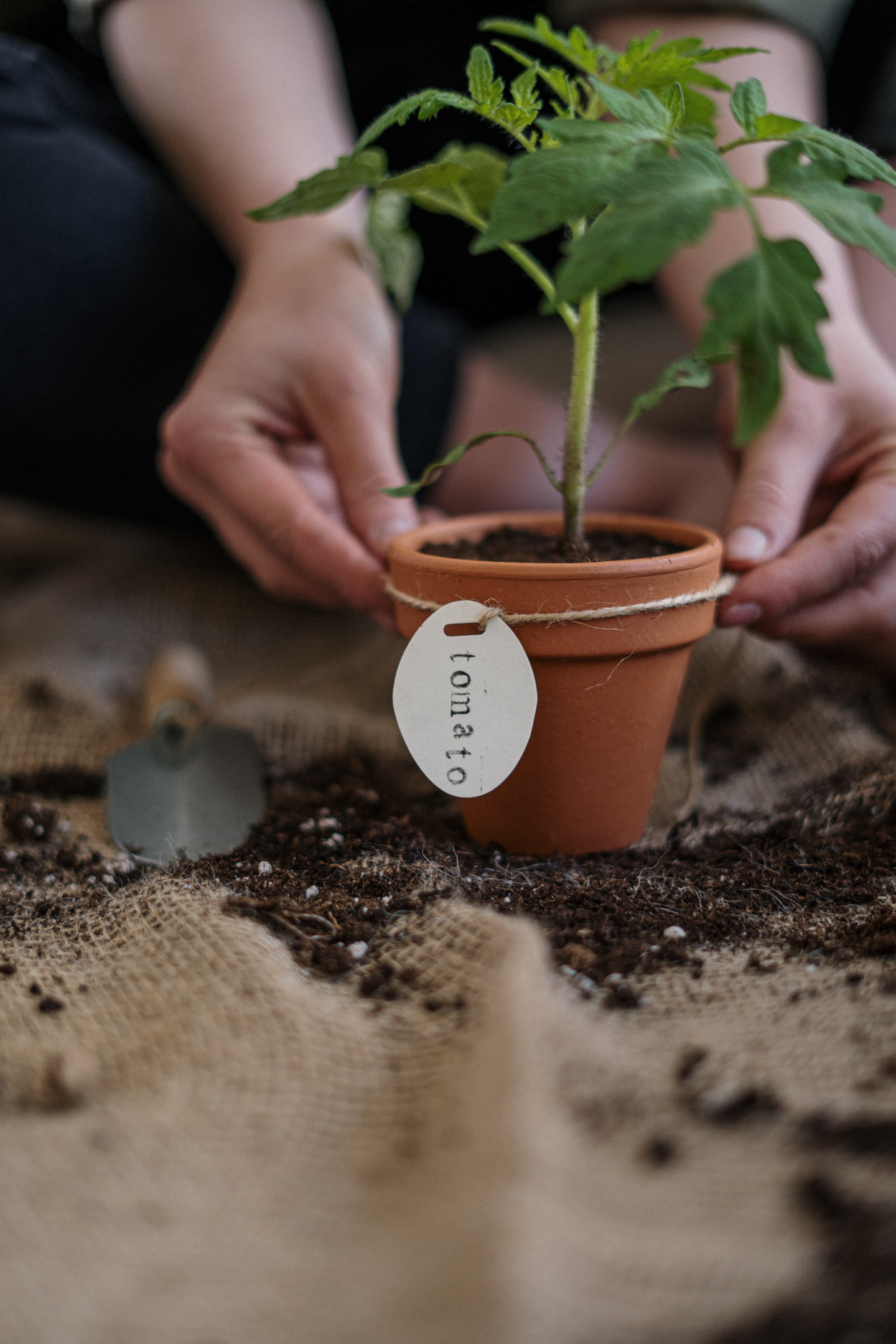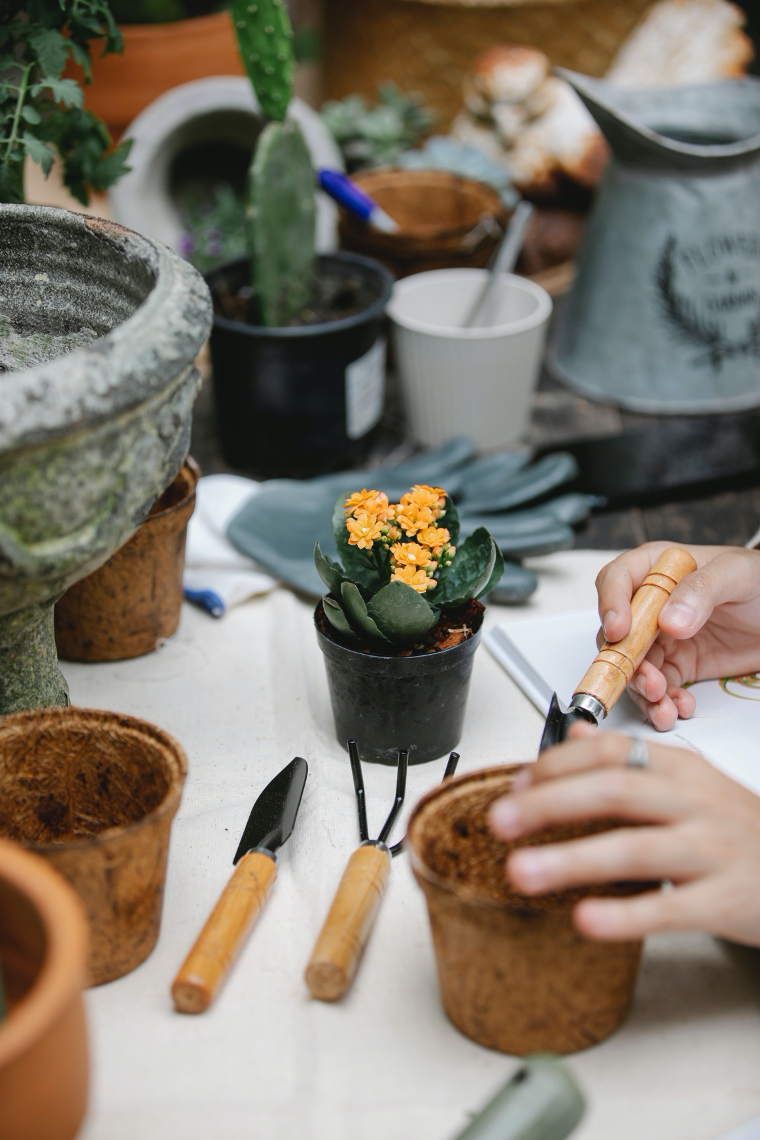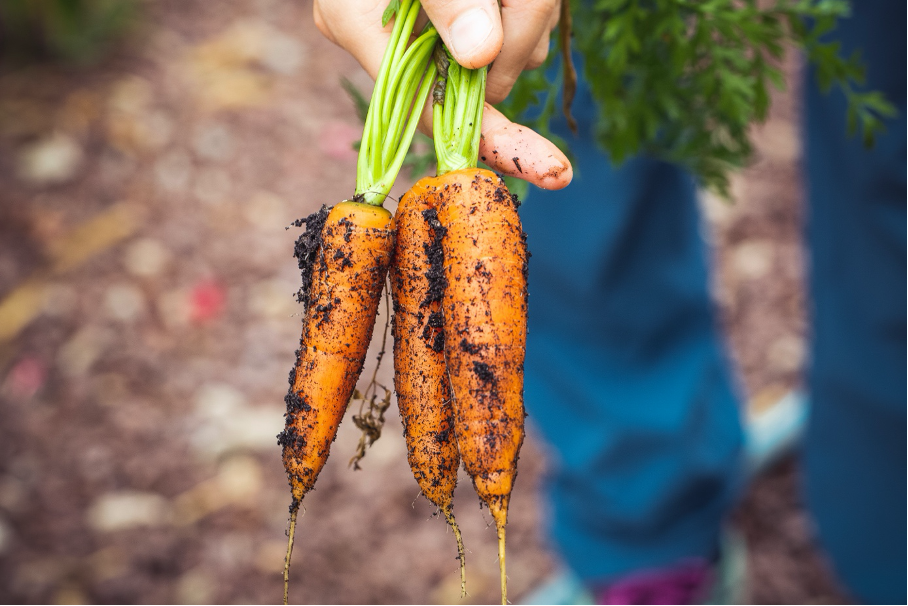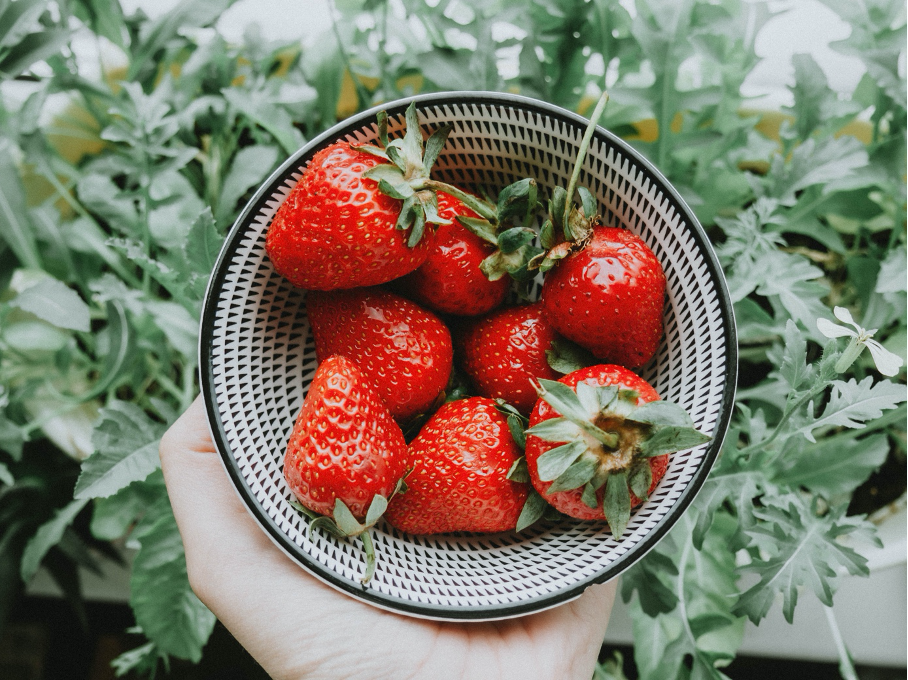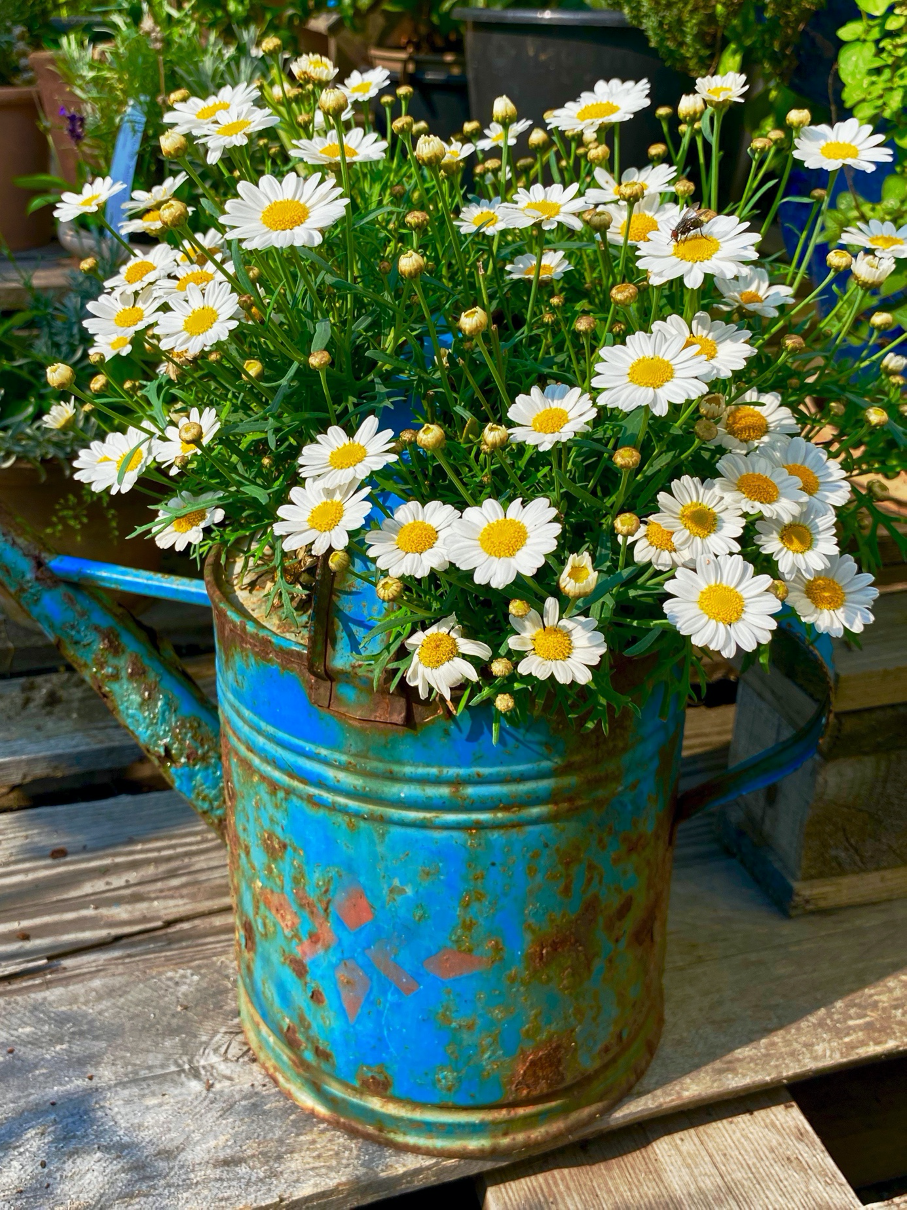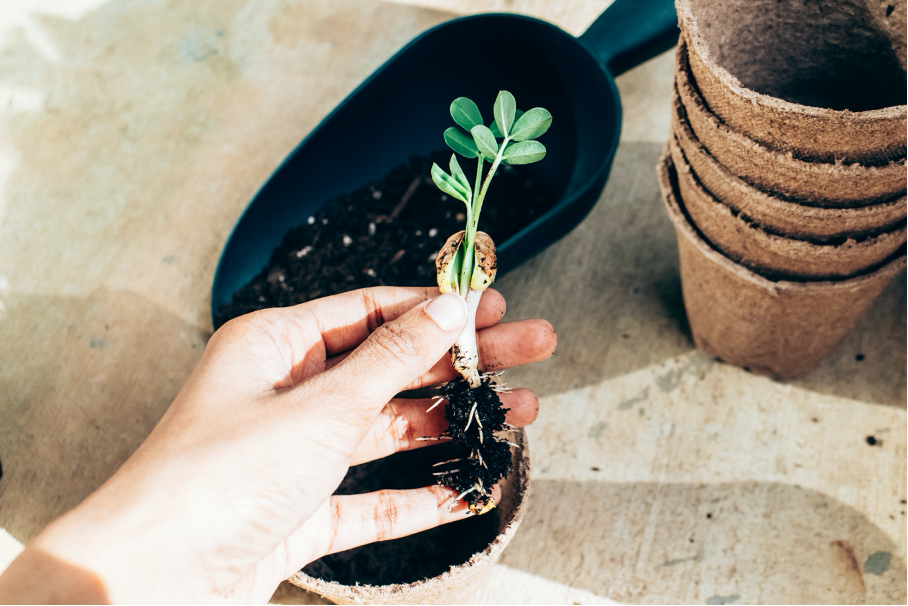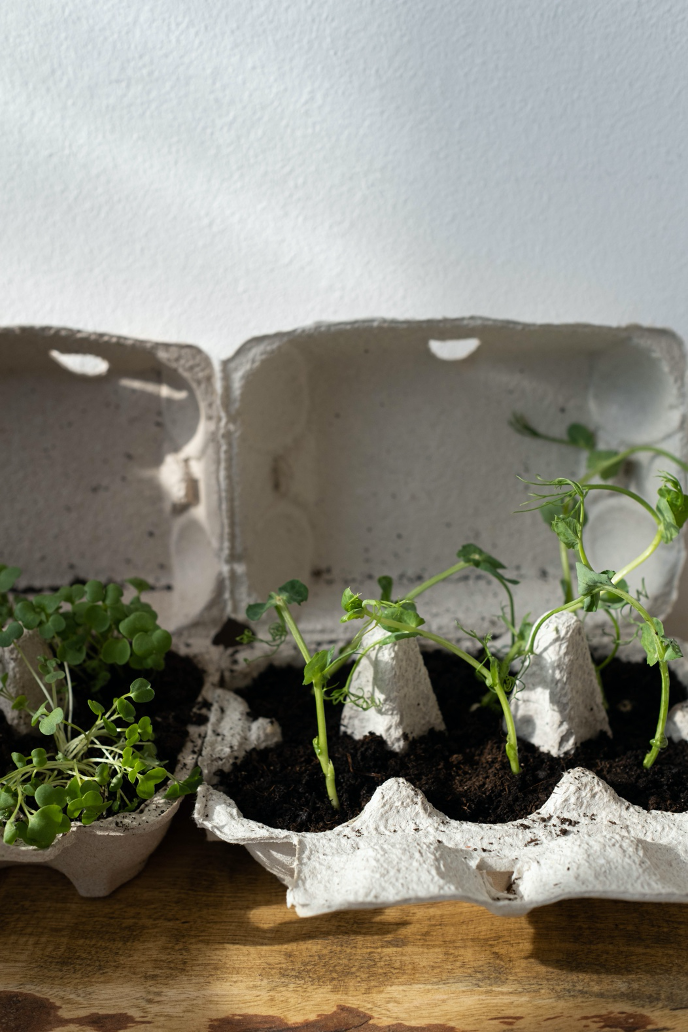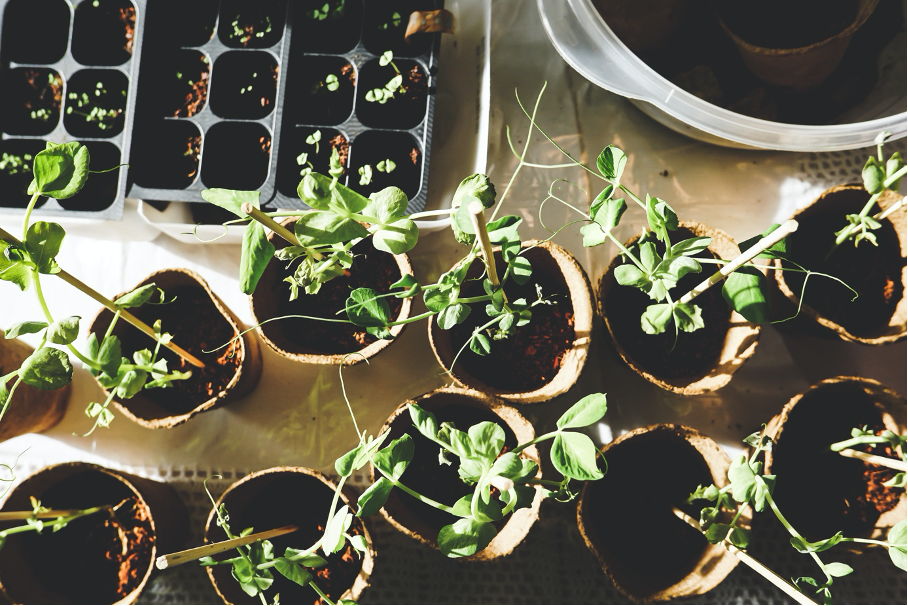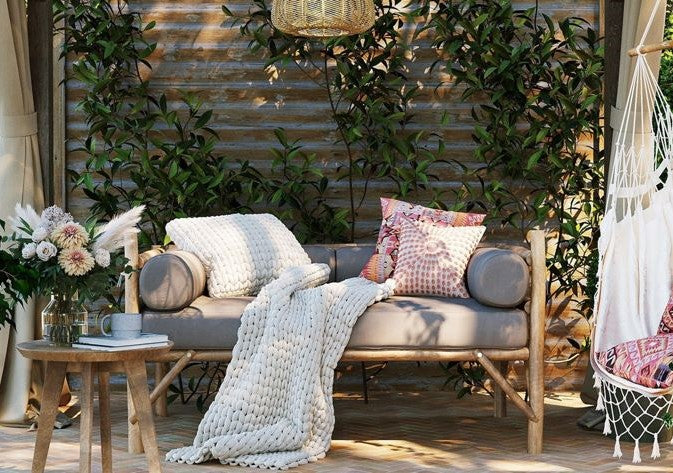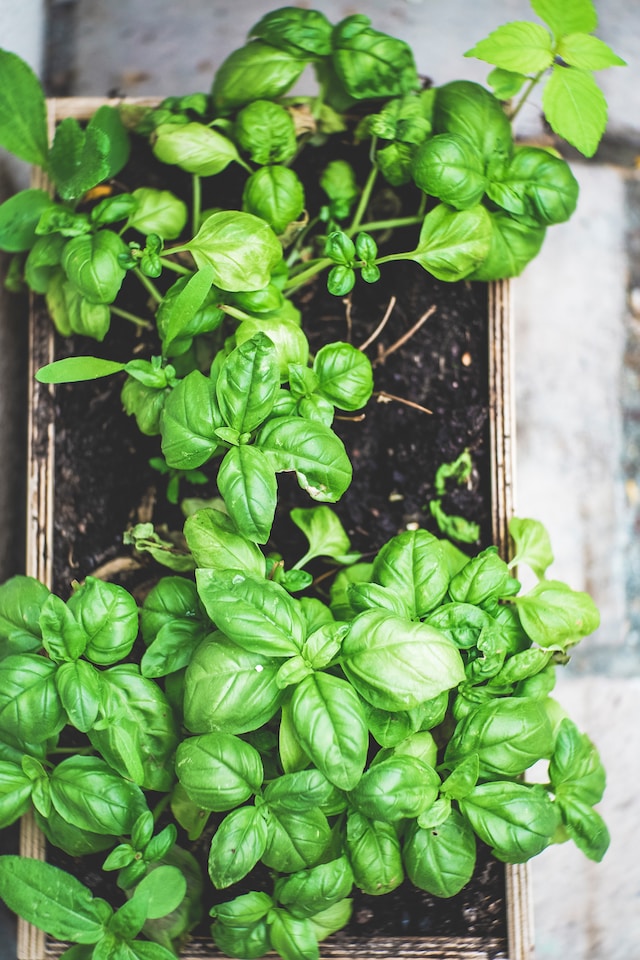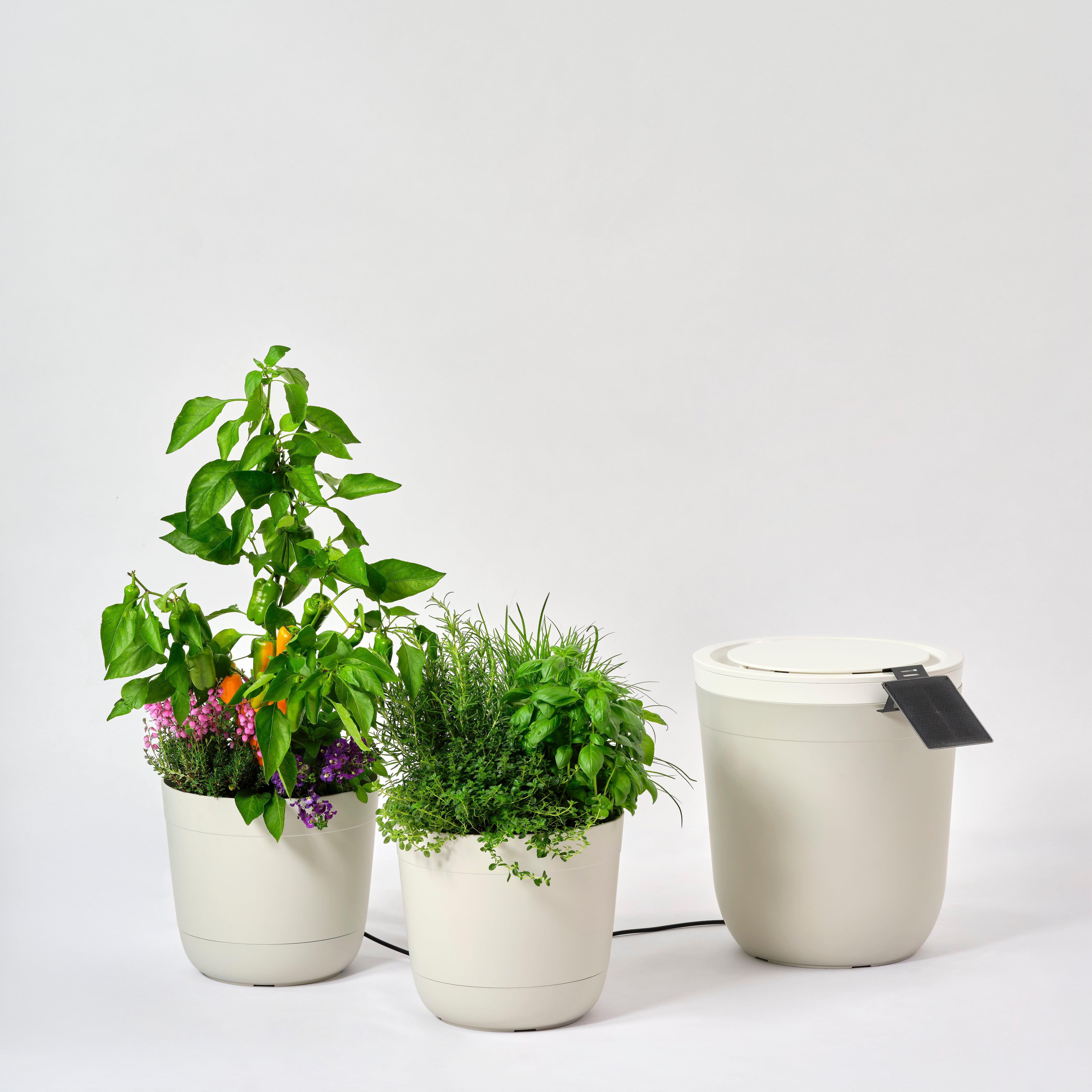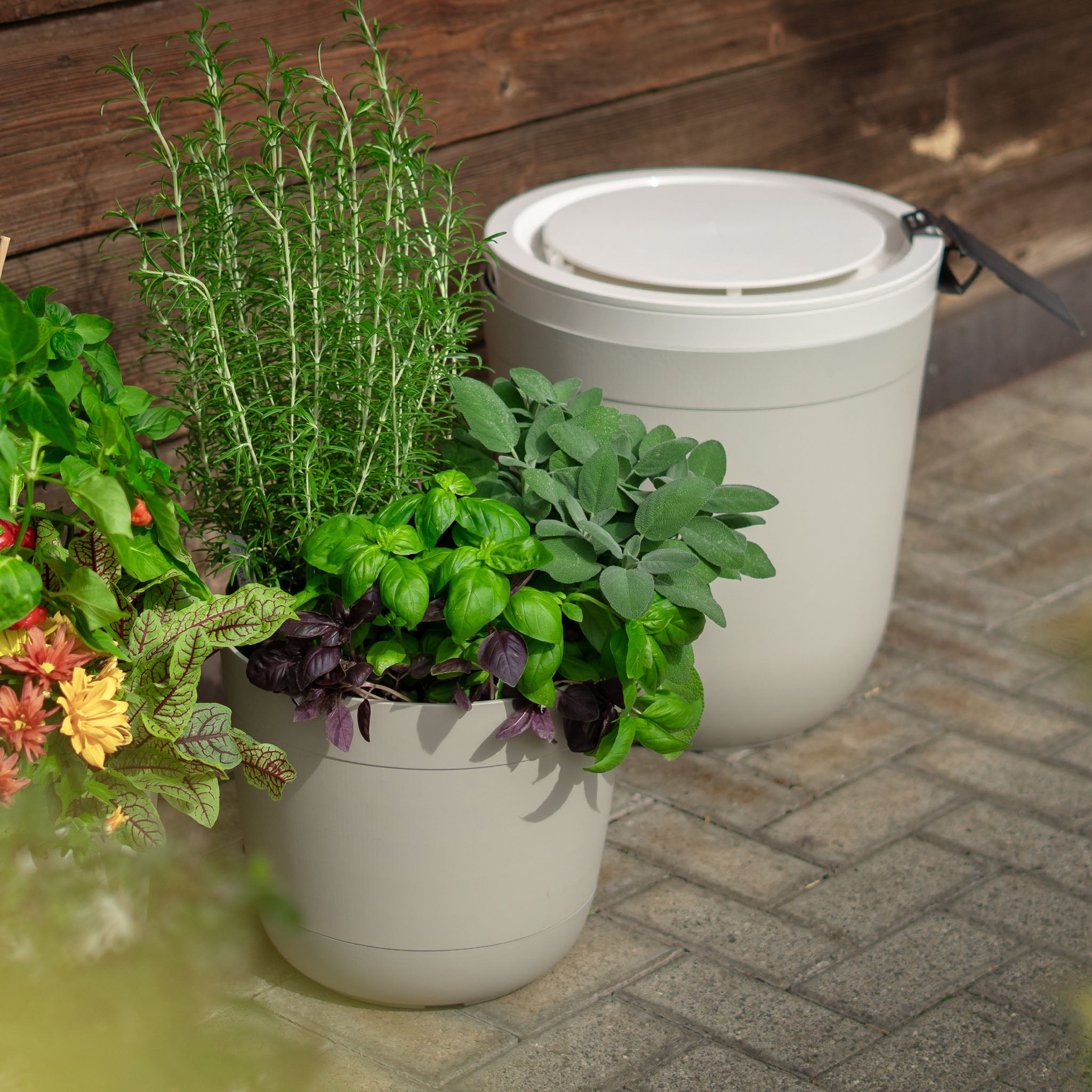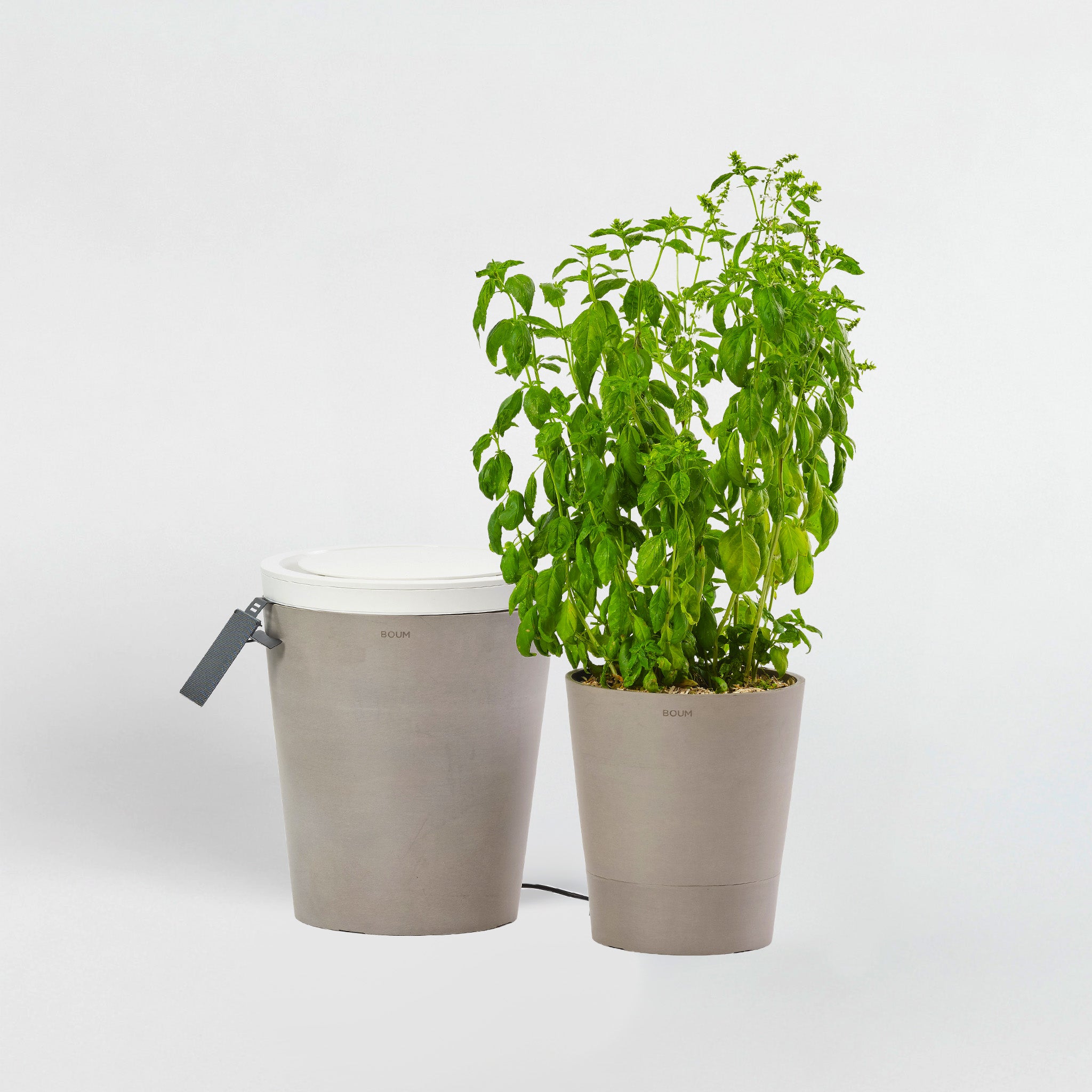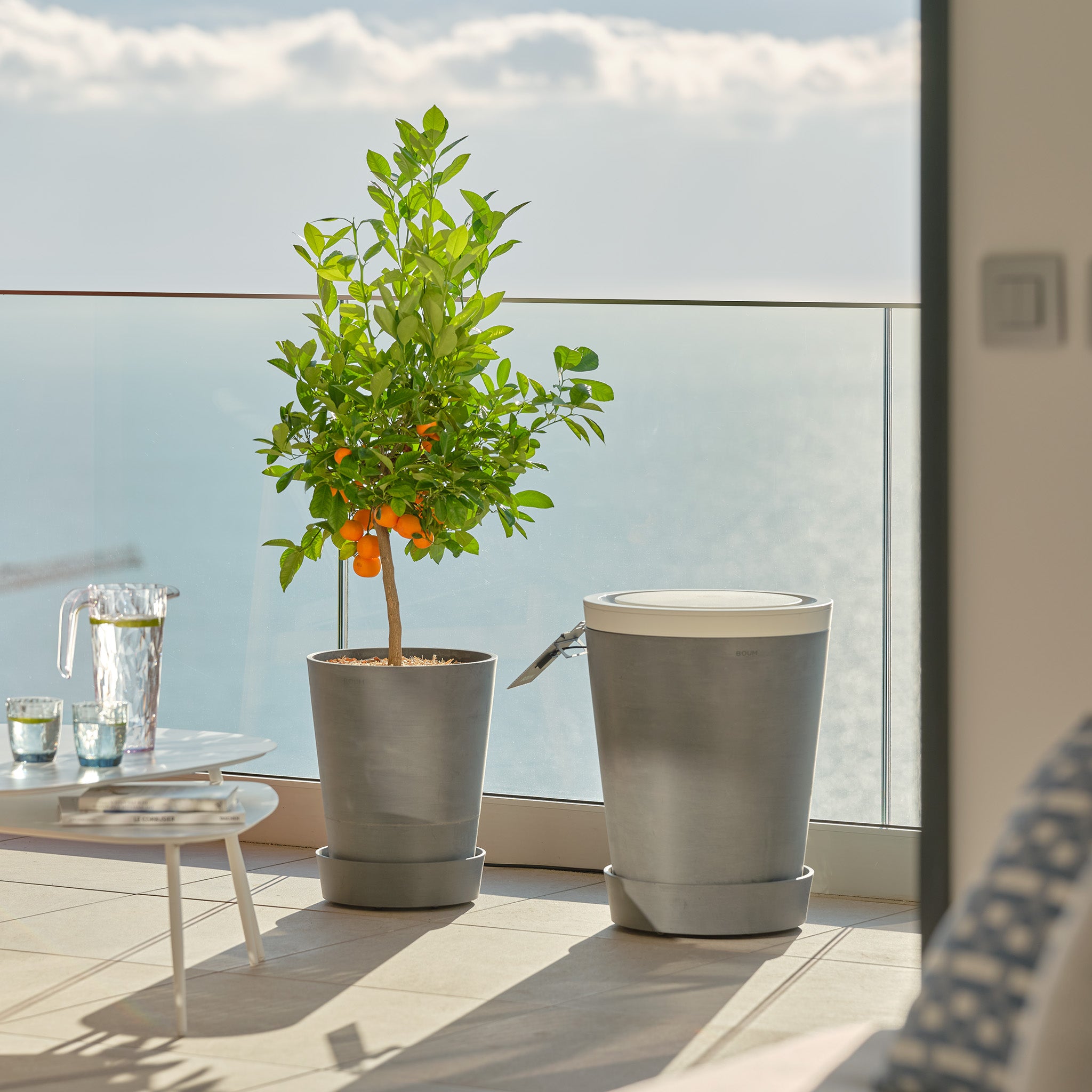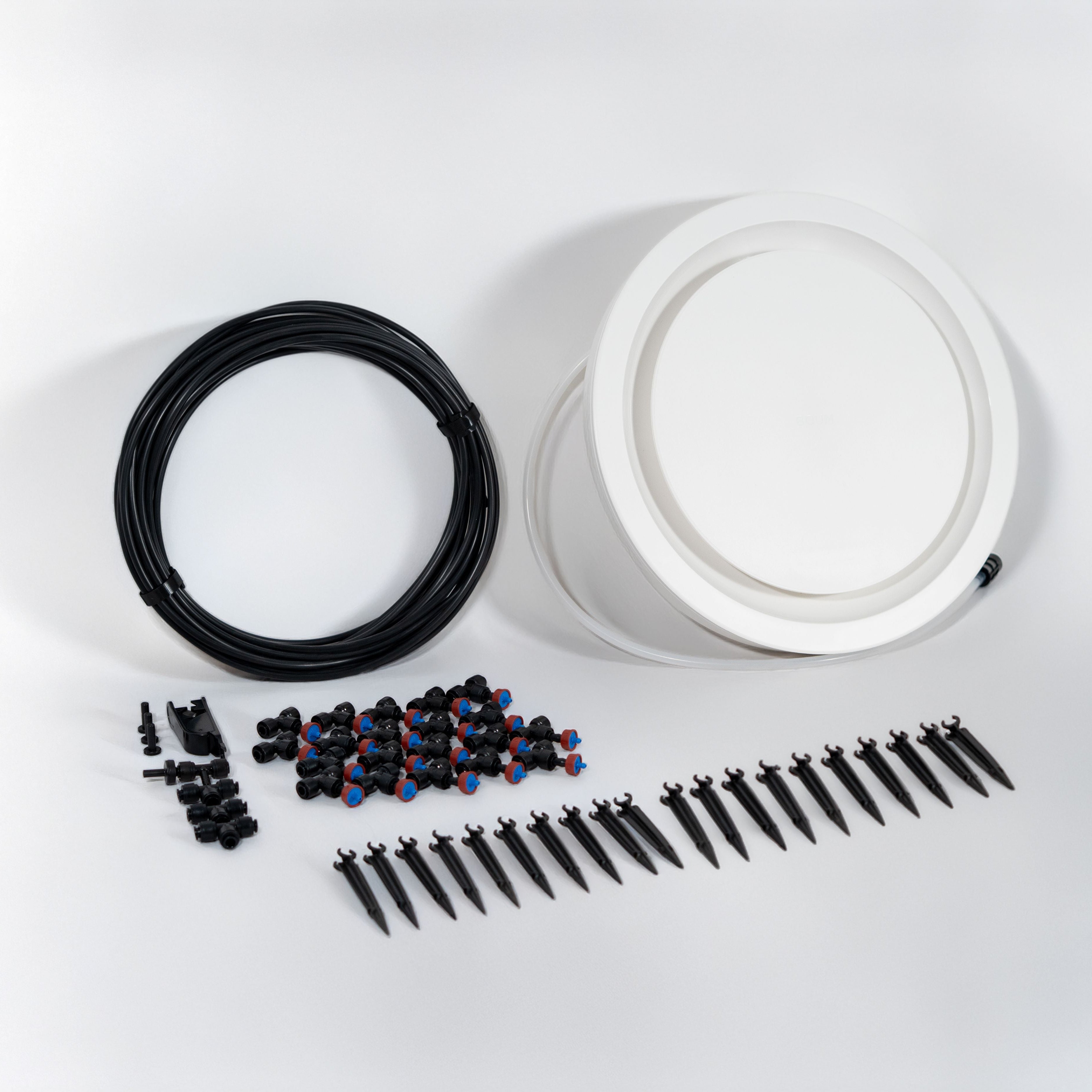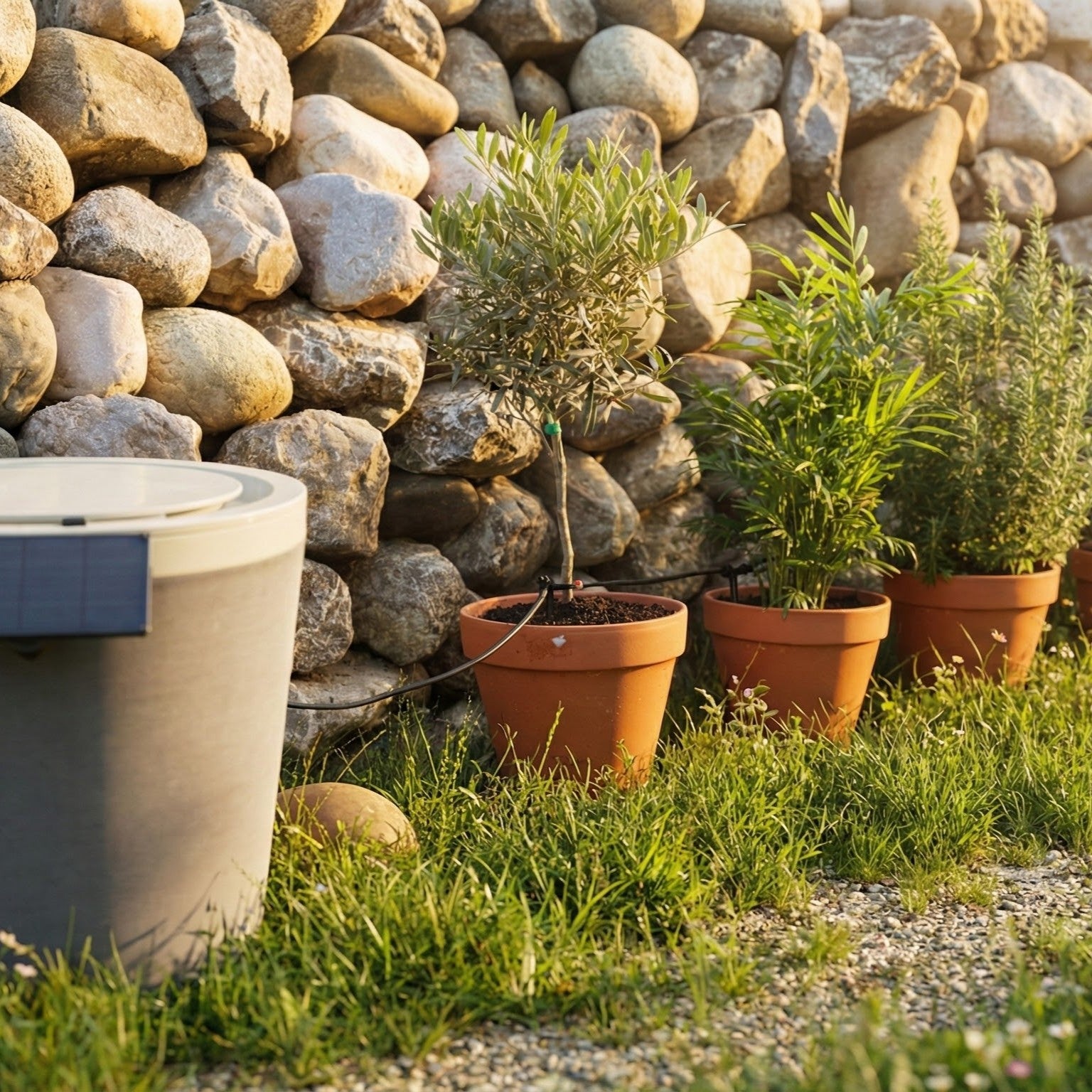Contents
-
What is urban gardening and what are the benefits?
- 10 good reasons for urban gardening
-
What you need for urban gardening
- Let's get started! How to get started with your balcony garden
- Now you can plant!
- Plant care on the balcony
What is urban gardening and what are the benefits?
Urban gardening – what does the term actually mean? In short: gardening in a small space to green the city, making it more livable and sustainable. Whether it's a private garden on a balcony or the cultivation and greening of areas in urban spaces such as street beds, house walls, and community gardens.
But gardening has been practiced in cities ever since cities existed! Allotment gardens, for example, existed as early as the 19th century and would significantly raise the average age of urban gardeners. And didn't modern urban gardening actually begin in Cuba, born out of a food shortage? When it comes to distinguishing what belongs to the precursors and what belongs to the modern understanding, definitions in research and the media sometimes differ widely. And when trying to differentiate urban gardening from urban farming and political guerrilla gardening, even more opinions converge.
But whether it's a new name for something that was diligently practiced generations ago or a current trend, one thing is certain: there is proper gardening in the cities and there are plenty of reasons for this.
10 good reasons for urban gardening:
- Urban gardening looks beautiful . A green city is much nicer to look at than gray concrete.
- Urban gardening is healthy . More plants = more oxygen, so it's good for the climate. And for our psyche, too.
- Urban gardening brings nature to you. Especially if you're busy and rarely get out of the city, your balcony can become your personal green oasis.
- Urban gardening is good for animals . From bees to butterflies, you'll welcome many grateful visitors to your garden.
- Urban gardening is fun . Who doesn't enjoy watching their plants grow and reap the rewards?
- Urban gardening provides you with food . If you want, you can try your hand at growing vegetables. This way, you'll save yourself a trip to the supermarket and know where your food comes from.
- Urban gardening is sustainable . Everything you need can be reused. And depending on the size of your project, you can avoid waste generated during transport and sale.
- Urban gardening adds value . Your apartment will have an additional room, and you'll be proud to invite guests onto your balcony. Perhaps there'll be a home-grown salad.
- Urban gardening isn't time-consuming . A large garden requires a lot of love and attention, but caring for plants and vegetables on your balcony is relatively manageable.
- Urban gardening brings people together . Gardening with others is especially fun, and the work is easy to share, whether among roommates and partners or larger community projects.
So get started and swing your trowel! Balcony gardening is suitable even for beginners. We'll help you with your project step by step.
What you need for urban gardening
The answer to that is very simple: not much.
- A little space
- Some creativity
- Fun gardening
That's it. Whether you're driven by a beautiful retreat, a green city center, homegrown harvests, or sustainability, with our tips and ideas, you'll find more space for plants than you probably initially thought. And once you start, you'll keep looking for more options!
Let's get started! How to get started with your balcony garden
Where to put the plants? Choosing the right location
Before you start digging in the soil, it's worth checking the location. Literally, because the location of your garden is crucial for your plant selection. Is the balcony sunny or shady? Do you have room for a raised bed, or would you like to use smaller plant pockets to green up your wall?
Small balcony, big garden plans
Too small is no excuse! There are great creative solutions even for small balconies, and even the tiniest corners can be cleverly utilized. Consider using the wall for shelves or plant bags, use narrow raised beds, and of course, the tried-and-true balcony boxes. We've collected a few ideas if you're looking for inspiration for your balcony decor. If you have a suitable balcony railing, consider it as an option for decorating with climbing and hanging plants.
Plenty of room for creativity
If you have more space for your future garden, you can plan for fruit trees in larger pots or get creative with your planting. Depending on the size, you can include wheelbarrows filled with soil, barrels filled with plants, or even an old bathtub.
The agony of choice: getting plants, plant pots and soil
You're slowly getting closer to your urban gardening project. Once you know where you want your garden, you can choose the plants, along with the containers and soil they'll need. If you're south-facing, choose sun-loving plants or provide shade; if you're north-facing, choose shade-loving plants.
It'll be green either way, and you have a choice of herbs, fruits, and vegetables. Just make sure you choose a suitable variety, especially for fruit, that will also thrive in a container as a small shrub.
To help you decide, we have listed a few balcony plants – also suitable for urban gardening beginners!
What can I grow on my balcony?
| Vegetables | Herbs | Fruit | |
| Sun |
tomatoes Carrots cucumbers zucchini chili potatoes |
rosemary basil thyme lavender oregano mint |
strawberries Apple (column) Pear (column) peach apricot nectarine |
| Partial shade | celery radish Leaf lettuce spinach |
Parsley cress chives Lemon balm |
Raspberries (small) Blueberries |
Find suitable planters and soil for balcony plants
You can get creative with the containers. Whether clay, plastic, or metal—plants will thrive wherever there's enough soil. Just make sure your plants have enough space, are planted in suitable soil, and that you prevent waterlogging by providing drainage. If you want to start plants early, get seeds and potting soil.
We've put together some tips for choosing suitable planters for your balcony . And if you already know you don't have enough time or inclination to care for them, we can help you with our smart irrigation system, including plant pots .
Now you can plant!
Got a concept and everything you need? Then it's time to plant. If you want to start from scratch, start by raising your plants. It's easy, and you'll love watching them grow!
How do you start plants early?
Timing is everything. And this can vary slightly depending on the plant. After you've selected your desired plants, vegetables, or fruit, check the correct sowing time; it's usually indicated on the seed packet. Generally speaking, gardening begins in late February/early March! If you start pre-growing your herbs and vegetables now, your plants will be ready for moving to the balcony when the temperatures get a bit warmer. However, some, like tomatoes and chilies, don't like it too cold and shouldn't be pre-grown until late March.
A little tip for working with potting soil: If you work in a cardboard box or a large, turned-up shopping bag, you'll save yourself a lot of cleanup time!
When the time comes, grab small growing containers. You can also make them out of cardboard, repurpose old toilet paper tubes or egg cartons, or use seedling pots from the hardware store, which you can then place as they are in the final container. It's important that you fill them with fresh potting soil that contains very little fertilizer. This ensures that the plant doesn't shoot up too quickly and instead uses its energy to grow stronger. You can separate the young plants during the growing process (called pricking out) and repot them, or use only one seed per pot. If you use larger pots with multiple seeds, make sure they're spaced sufficiently.
For the seeds to germinate, it needs light and warmth; they like a comfortable 25 degrees Celsius, which is why a small greenhouse is ideal. You can find these at hardware stores. Alternatively, you can cover the pots with cling film, which has the same effect. However, this should be removed as soon as you see the first plant heads to prevent mold from growing.
Once they're strong enough and the weather is right, the young plants can be moved outside to transform your balcony into a green paradise. Acclimatize them slowly to the environment, placing them in the sun for a few hours before finally moving them into their pots or garden beds.
Plant directly – make it easy for yourself to start
Does starting plants early sound like too much effort? Then make things a little easier for yourself in your early days as an urban gardener and buy pre-grown seedlings. If you don't want to grow vegetables, but rather a variety of plants, you'll probably find them in various sizes at the hardware store, depending on the season. So, check your location and sun requirements, and get started.
Plant care on the balcony
The time has come; you're proudly standing on your balcony and can enjoy your urban garden. But don't forget to take care of it, or the joy will quickly turn to frustration. Even as a beginner, you'll quickly get to know your plants and their needs. Some need little water and nutrients, others a little more of both. But you'll be able to take care of them in no time.
Watering on the balcony
In addition to sufficient sunlight, watering is vital for your plants. Once you know the water needs of your different plants, it's best to incorporate watering into your daily routine. Ideally, do it in the morning, when the sun is still a bit off. As a rule of thumb, the soil should always remain evenly moist—especially when the sun is blazing. But if it's too wet, fungi could make themselves comfortable in the pots.
If you find watering difficult or you frequently travel for extended periods, there's no reason to despair. We can support you with our irrigation system. – simply check the water level via app and relax and enjoy your balcony oasis!
Fertilizing balcony plants
Every now and then, plants in tubs and pots appreciate a few nutrients. Nitrogen, phosphorus, potassium... all of these help promote shoot growth, develop flowers, and strengthen stems. So, you should occasionally treat them to fertilizer. Find out more about the right choice for each plant. And, of course, pay attention to your diet: When it comes to fruits and vegetables, only choose what's suitable.
Congratulations, you now have a garden! With these tips, you'll definitely be able to enjoy your balcony garden well into the cooler seasons and maybe even eat homegrown vegetables. Have fun with your very own urban gardening project!

